-
HER FINNER DU OSS:
Bondistranda 29E, 1386 ASKER
HER FINNER DU OSS:
Bondistranda 29E, 1386 ASKER
20 Jul. 2022
Ketamine Addiction & Abuse
Content
However, doctors sometimes prescribe it for “off-label” uses, such as depression. Off-label means using the drugs to treat conditions the FDA has not approved. For ketamine to be helpful in addiction treatment, it must be used under the close care of medical professionals. Ketamine, also known as Special K or Super K, is a short-acting anesthetic drug with hallucinogenic effects.
If substance misuse disrupts work, school, and personal relationships, it can indicate a ketamine addiction. Chronic ketamine abuse has the potential to introduce toxicity to the gastrointestinal and urinary tract. This can result in severe pain and discomfort, and it has been recorded that some patients as young as twenty have needed their bladders removed, all as a result of their ketamine consumption.
Is Ketamine Addictive?
Ketamine triggers activity of a neurotransmitter called glutamate in the frontal cortex of your brain. It also allows more synapses, which allow information to flow inside your brain, to form in the same area. Rehabilitation centers can help with different treatment options, detox programs, and other necessary assistance for overcoming dependency. In addition, the FDA now recognizes the antidepressant benefits of ketamine when it is combined with oral depressants. Ketamine works by suppressing glutamate signaling in your brain, while opioids ”hijack” your endogenous (naturally occurring) opioid system.
It should be noted that mindfulness and meditation may also help with decreasing ruminations, and there may be potential in engaging in mindfulness and meditation in the days following one’s ketamine treatments. Ketamine’s dissociative effects are so powerful that it is commonly referred to as a “date rape drug.” When ingested, ketamine can cause users to hallucinate (experience visual and auditory disturbances). Because it’s an anesthetic, it can reduce physical sensations and induce temporary paralysis, so the user is awake but unable to move his or her limbs or even talk.
Ketamine Abuse and Addiction
Ketamine also causes long-term damage to the bladder and urinary tract that can result in a condition known as ketamine bladder syndrome. Ketamine bladder syndrome may also cause blood in the urine and ulcers in the bladder. An overdose of ketamine can cause unconsciousness or slowed https://ecosoberhouse.com/ breathing, which is very dangerous. Different amounts of ketamine will give different “highs.” A medicinal dose is usually around 1 to 2 milligrams for each kilogram of body weight. After a few minutes, your heart rate speeds up and your blood pressure begins to go down.
If the patient develops severe symptoms or complications, the patient should be placed on a monitor and admitted for observation. The World Drug Report in 2015 categorized ketamine as a worldwide recreational drug, with 58 countries reporting illicit use. However, ketamine misuse occurs on a relatively small scale, and PCP derivatives constituted only 1% of “new psychoactive substances” reported to the United Nations Office of Drugs and Crime in 2014 (fact file on ketamine). Ketamine misuse often occurs in combination with other substances, including alcohol, amphetamines, MDMA, cocaine, and caffeine.
Why is Ketamine Used Medically?
It is thought that the creation of new cells and strengthening of nerve pathways may be correlated with new learning. This is one reason professionals are interested in adding talk therapy or new learning to the ketamine treatment process, as the ability to think in new ways and engage in new behaviors may be amplified during and after ketamine treatment. The utility of behavioral interventions as adjuvants to ketamine pharmacotherapy in addictions treatment is understudied.
If that remains the case, derailing its use to treat mental health disorders will be difficult. As mindsets and stigmas around alternative medicines continue to shift, there is hope that other agents will evolve in comparison to ketamine that are equally effective, safe, and can be widely accessible. Abuse of large doses can also lead to powerful visual hallucinations that are intensified by environmental stimuli. When higher doses of ketamine are abused, or during emergence, it is reported to produce vivid dreams and an “out-of-body”, “K-hole” or “near-death” hallucinogenic experience, often reported as terrifying (similar to bad LSD trip). Treatment addresses your deepest needs, tapping into your strengths and enhancing your motivation. It enables you to become aware of factors that led to drug dependence and deal with the problems that kept you there.
Ketamine Abuse Treatment
Furthermore, it tends to slow people down and make their movements rather exaggerated due to a loss of motor coordination. Additionally, when the user is temporarily paralyzed by the drug, they won’t be able to clear their airway, which can lead them to choke and potentially die from aspiration. She helps brands craft factual, yet relatable content that resonates with diverse audiences.
There are animal reports of an increased risk of toxicity when ketamine is combined with caffeine. Theoretically, this may be a concern in people who have consumed energy drinks, often done at nightclubs where ketamine may be abused. The effects of abuse typically last 1 to 2 hours, but the users judgement, senses and coordination may be affected for up to 24 hours or longer.
- By: admin
- Comments: No Comments
20 Jun. 2022
Considering a Break From Alcohol? How to Start the Process
Money can become an issue with the need to support drinking or other use. Stress about money can become an issue in taking care of personal needs and appearance, as it might be spent on use in place of basic necessities. In the beginning stages of drinking, the experience and effect can be subtle on schoolwork. However, with increased frequency and amount, concentration, motivation and memory can be affected.
- Other studies, such as this one from 2022, have found similar results, showing no health benefits of consuming alcohol in moderation for people under 40, only risks.
- Still, travelers across the U.S. are expected to come out in droves for the annual spring fling, with travel volume ahead of spring break up 6% compared to the same time period in 2023, according to the TSA.
- It can cause memory loss and interference with brain development.
- But if you’re new to sober curiosity, you may not know where to begin thinking about your relationship with alcohol.
- “All my drinking was really centered around community and wanting that connection so badly with other people,” he says.
- However, for people who exceed recommendations in the Dietary Guidelines for Americans, he said staying away from alcohol for a month can reap changes.
It’s important to remember that you have the power to choose,” she adds. “The alcohol was certainly a numbing agent,” listener Mark Vowers told us. Vowers says not drinking makes him feel more present — more grounded. Mindfulness practice has also been shown to help drinkers to change their drinking. Nicole Lee works as a consultant in the alcohol and other drug sector and a psychologist in private practice.
National Institute on Alcohol Abuse and Alcoholism (NIAAA)
Drinking can also give us a rebound effect when we wake in the early hours of the morning, when the alcohol in our system has worn off and our brains are overstimulated. You may find that alcohol-free sleep is much better quality and that you generally feel more rested and refreshed the next day. In this series of Tips & Hacks by Hello Sunday Morning, we’re talking about what to expect when you take a break from alcohol. It can be good to be aware of some of the things that might change for you if you take this step – from your social life to the health side of things. With this in mind, we’ve put together some common experiences that our Daybreak members have mentioned they’ve experienced when they took a break.
Another 2017 brain study published in PLOS One found that two to three weeks of alcohol detox can boost your working memory.6 This type of memory helps you temporarily retain important information, like a digital code or phone number. I drink alcohol to numb the pain and I’m terrified of being without it. I know I need therapy and I need sobriety and I need support, but alcohol is the only thing that makes me feel OK at the end of the day. These ideas are all helpful when you’re taking a break from drinking.
Will I experience withdrawal symptoms if I stop drinking?
Many of the participants said they had more energy, which fits with the experience of listener Sarah Black Sadler. “The biggest thing that I noticed is that I don’t need alcohol to have a good time with my friends.” You don’t need to wait for Dry January, Sober October, or any other take-a-break-from-drinking month to roll around. If you’re not sure how to take a break from alcohol how to get started with a break from alcohol, my latest book, The Alcohol Experiment, offers a daily guided approach that’s both pain- and judgment-free! Or, see below for some of my practical tips for getting through 30 days sans alcohol. Not too long ago, a group of women in a bar who were not drinking alcohol would have seemed kind of strange.
- “Even moderate drinkers who stop drinking for two months tend to overdrink when they start again,” Dr. Koob says.
- You can begin setting boundaries by creating a little distance from big drinkers in the initial phases of sobriety and also find others who are in the same boat as you, says Mehta.
- NIAAA’s Rethinking Drinking can help you assess your drinking habits and provides information to help you cut back or stop drinking.
So, SELF connected with experts to find out what actually happens to your body when you go sober. If going out for drinks feels more like a mandatory event and less like a fun occasion, you might be considering taking a break from alcohol—at least for a little while. We all have that friend who took a timeout from booze, and just swears they look better, feel better, and suddenly have the boundless energy of a baby gazelle. So maybe it’s time to see for yourself what happens when you stop drinking. Although it doesn’t always happen instantly, weight loss is a natural occurrence of taking a break from drinking. When we think about it, those beers or wine in the evening can make up half our daily recommended calorific intake – so cutting this out is going to result in shedding the weight, especially if you keep going over several months.
Why 66 Days?
“Viruses won’t be caused by alcohol, but you can be more vulnerable to them if you’re drinking,” he says. So, it’s not that sober living will give you a super-powered immune system—it’s just that it will get you back to your baseline, i.e. the efficient immune system you should have had before you started drinking. If you’re an otherwise healthy person, Dr. Galligan says it should take your immune system just a few weeks to bounce back. It’s hardly a secret that having a few drinks alters the way your brain works. Even if you are just looking to cut down, then take a 66-day break and you will find it SO much easier to drink within the low-risk levels of one and a half bottles of wine (or six beers) a week.

Whisk vigorously until the mixture thickens and gets frothy, like cold pancake batter (sounds weird, but that’s what you want), about 2 minutes. (Well, it took https://ecosoberhouse.com/ my friend Mindy 2 minutes, but it took me 5. She’s strong!) Use immediately. Fill a collins glass with ice, then add the ginger beer and cherry juice.
- By: admin
- Comments: No Comments
11 May. 2022
How Long Do Stimulants ADHD Meds, Meth, Cocaine Stay In Your System?

Amphetamine salts can be detected in the urine for three days after a single use. People who take amphetamines daily will typically test positive for nine days after the last dose. Methamphetamine is detectable for longer than amphetamines and can be detected for up to seven days in the urine after just one dose. The liver breaks down amphetamines, but some of the drug is filtered into the urine by the kidneys.
- This is called amphetamine withdrawal syndrome, and it can be challenging to get through without support.
- Blood tests often require invasive methods, which may be too uncomfortable for some people.
- This can be somewhat different between various drugs, though.
Types of Amphetamines and How Long It Takes To Feel The Effects
- This means there is no quick and easy way to reverse their effects.
- Though it is not as commonly used, it can provide insight into use in the last 24 to 48 hours after intake.
- Methamphetamine can show up in a urine test for anywhere from three to six days and in a blood test for 24 to 72 hours after it’s used.
- Another drug combination that is slowly gaining notoriety is Adderall with Phenibut.
In blood, amphetamines can be detected for up to 24 hours, while in saliva, traces can be found for up to 1-3 days. Hair follicle tests have the longest detection window, with amphetamines being detectable for up to 90 days after use. Cocaine stays detectable in the body for a specific duration. The length of time that cocaine can be detected in a person’s system depends on various amphetamine addiction treatment factors, including the amount and frequency of use and the individual’s metabolism. In general, cocaine can be detected in urine for about 2-4 days after use.
Which drugs are classed as amphetamines?
Ultimately, how long do amphetamines stay in your system has more to do with your drug using behaviors than anything else. This includes any other forms of drug use since drug metabolism rates can fluctuate when using different types of drugs (or medications) at the same time. Meth withdrawal can prove dangerous for many people due to its impact on the brain. Meth withdrawal management programs help people safely and comfortably detox from meth in a supportive and supervised environment. However, getting through the detox process is crucial for continued treatment.

Stimulant Regulations

Some are illegal, such as meth, whereas others are legal and available by prescription, such as Adderall and Ritalin (which are often how long do amphetamines stay in urine used to treat ADHD). Whether you are struggling with addiction, mental health or both, our expert team is here to guide you every step of the way. Don’t wait— reach out today to take the first step toward taking control of your life.
Amphetamine Saliva Drug Test
- Prescription stimulants include Adderall, Ritalin and Concerta, among others.
- For instance, Adderall XR (extended-release) contains beads that slowly release the active ingredient over 8–12 hours 1.
- That happens just because the drug tends to bind better with darker colors.
- This is part of our ongoing commitment to ensure FHE Health is trusted as a leader in mental health and addiction care.
- Constant medical care provided during inpatient treatment helps prevent relapse.
- Common meth slang names include Speed, Ice, Crank, Cristina, Trash, and Chalk, to name a few.
- When prescribed by a doctor for a specific health condition, like ADHD, they can be relatively safe and effective.
In many cases, traumatic experiences can result in a mental health disorders and substance abuse. Dual-diagnosis rehabilitation treats both of these issues together. The best approach for the treatment of dual diagnosis is an integrated system. In this strategy, both the substance abuse problem and the mental disorder are treated simultaneously. Numerous treatment options provide help for amphetamine withdrawal. The right type depends on the individual’s level of physical dependence 4.
What Is Adderall?
Recreational misuse of prescription stimulants has gone up significantly in the past two decades because they are so widely available. Tests can detect amphetamine use on blood, urine, hair, and saliva samples. The detection period for any drug depends on its metabolism rate, the user’s physical condition, and fluid intake. The frequency and method of use play a role in the detection period as well.
Cocaine And The Heart, Effects Of Cocaine Addiction

Chronic illicit amphetamine use has additional physical and mental side effects such as aggression, hallucinations, tooth decay, sores, weight loss, and aging skin. The effects of amphetamines are similar to cocaine, but their onset is slower and their duration is longer. Over the years, the use and abuse of clandestinely produced amphetamines have spread. Today, clandestine laboratory production of amphetamines has mushroomed, and the abuse of the drug has increased dramatically. The person initially experiences a “crash” that lasts 1-2 days and then experiences a long period of withdrawal that can last anywhere from five days to several weeks. In this article, we take a closer look at cocaine, why it’s addictive, how long cocaine stays in your system, and the long-term effects of cocaine use.

How Do I Tell My Parents I Need Amphetamine Addiction Help?
Amphetamine salts and dextroamphetamine stay in the blood for about 60 hours. Taking any drug for https://ecosoberhouse.com/ recreation poses risks, and snorting it is never safe. Stimulants such as Ritalin are often abused via insufflation. Snorting Ritalin encourages abuse and addiction, as it causes a person to feel the drug’s effects faster. When Ritalin is used intranasally (crushed and snorted), It has receptor effects similar to those of cocaine.
So, how long do amphetamines stay in your system depends on your body’s pH level at any given time. Amphetamines exist in a variety of forms, both legal and illegal. Legal amphetamines come in prescription form, many of which can be more potent than the illegal forms of the drug. Doctors can also screen for amphetamines by testing a strand of hair or the blood. If the doctors suspect amphetamine injections, they may encourage the patient to test for HIV and hepatitis B or C. This interval may be longer in individuals who participate in heavy, chronic use; it may be detected in urine for up to a week.
- By: admin
- Comments: No Comments
20 Apr. 2022
Alcohol Relapse: Warning Signs, Triggers & Prevention
It’s always best to consult a physician on the best strategy, especially if you drink heavily. A therapist can help you learn new coping skills, develop new thinking patterns, and address any co-occurring How to Avoid Drinking Again After Sobriety mental health conditions that may make recovery more difficult. Now that you are sober, you may have discovered that some of your past relationships were not only unhealthy but downright toxic.
How to Stay Sober
- There are common setbacks to getting and staying sober like withdrawal, craving, and pressure to use.
- By finding alternative activities to do, engaging in meaningful conversations, and focusing on the present moment, individuals can create fulfilling experiences without the need for alcohol.
- It’s also important to point out that if you struggle with episodic binge drinking (for example, drinking dangerous amounts every weekend, but not drinking during the week), this may not apply to your situation.
- Controlled drinking refers to a harm reduction strategy aimed at reducing the negative consequences of alcohol consumption rather than insisting on total abstinence.
- Instead, it invites a deeper reflection on the nature of addiction, the potential for human resilience, and the importance of personalized recovery paths.
But you also might discover that you are happier when you aren’t drinking, or that you really enjoy conversations with people more when you’re sober. You might find that one of the best parts about not drinking is that you don’t waste away the next morning sleeping and feeling hungover. So make the most of the time you gain by doing something enjoyable or productive. If you’re in recovery and feel especially fragile or are craving alcohol even after you leave the environment, be sure to seek help. Call a trusted friend or family member or go to a meeting at a nearby support group.
What to Do If Someone You Love Is Suffering From Alcoholism
This may mean that you don’t spend time with someone you used to use drugs with or go somewhere you used to drink. You might take a new way home from work, for example, to keep from going past your favorite old hangout. By Buddy TBuddy T is a writer and founding member of the Online Al-Anon Outreach Committee with decades of experience writing about alcoholism. Because he is a member of a support group that stresses the importance of anonymity at the public level, he does not use his photograph or his real name on this website. Although these new activities are healthy and productive, they can be a stumbling block to lasting recovery if they become a transfer addiction to fill the void left by the original addiction.

How long after you stop drinking does your body heal?
- Many people who misuse alcohol or drugs have trouble dealing with anger.
- The exploration of whether an alcoholic can ever drink again is nuanced, reflecting the individual differences in the experience and management of addiction and recovery.
We know that the severity of physical withdrawal symptoms can be influenced by the amount and duration of alcohol intake. There are warning signs to look for if an alcoholic in your life begins to drink again after being sober. Certain behavior changes can signal that an individual with an alcohol use disorder (AUD) has relapsed. People with alcohol use disorder are still considered alcoholics, even if they abstain from alcohol and achieve sobriety. Even if someone is dedicated to abstinence, they are still at risk, especially when upsetting life events occur, and put them in a place where coping skills are needed. In this blog post, we’ll explore the challenges and benefits of quitting alcohol after 20 years of consumption.
Therapists can also teach new mindfulness strategies and coping techniques, along with cognitive behavioral techniques you can use to challenge and reframe negative thoughts or self-beliefs linked to alcohol cravings. Experiencing alcohol cravings may not automatically mean you have an AUD. All the same, it could be worth talking to a mental health professional — more on that below. But regaining joy is not only possible in recovery, it’s likely much closer than it has been in ages for you. As the storm subsides, and you begin to find your bearings, you will begin to feel the pleasure or joy of being alive return, often stronger than before. Many people in long-term recovery report feeling more alive, healthy, and attuned to their purpose than they have in years.
“I was sober, now I’m not. And truthfully, I feel… weird about it?” – Cosmopolitan UK
“I was sober, now I’m not. And truthfully, I feel… weird about it?”.
Posted: Fri, 16 Feb 2024 08:00:00 GMT [source]
Tips for Staying Sober
Develop healthy relationships
Identify Your Personal Triggers
- Attending support groups can help you stay on track with your sobriety goals, reduce the risk of relapse, and provide a sense of purpose and accomplishment.
- Much of what causes us pain is our memories and thought processes, while the present moment is often not only safe, but actually pleasurable.
- One common mistake for those who are new to alcohol and drug recovery is substituting a new compulsive behavior for their old one.
- You can expect certain alcohol withdrawal symptoms such as sleep disruption to occur, though some people can experience seizures and other severe symptoms.
- Engaging in activities such as sports, swimming, cooking, making art, and exploring new places can not only help you stay motivated and on track with your quit drinking goals, but also enrich your life and bring you joy.
- Trends like this indicate that the parent might be in trouble and that it may be necessary to step in and ensure everything is okay.
Healthy Habits
- By: admin
- Comments: No Comments
25 Mar. 2022
Recruitment and Employment of People in Recovery U S. Department of Labor
The people you work with should for the most part be positive people or fun to be around. The general atmosphere should be welcoming rather than judgmental and negative. Even if the work is not the most interesting in the world, if you are working with good people and have fun with them while at work, then it may be a good choice for early recovery until you find something that speaks to your passions. No one is served well when they take on a job that is too easy for them. It is too easy to get bored, feel that the job is “beneath” them, or start to cut corners. The reason for this is because when you are customer-facing, you are somehow required to be friendly and be extra helpful to other people.
How to Become a Substance Abuse Counselor
Changing jobs when you’ve invested so much into your education may be even more of a challenge. Education requirements vary for these roles depending on the specific position, state or employer. Counselors working in addiction recovery typically need at least a bachelor’s degree, though some positions require a high school diploma and others require a master’s degree. Relevant graduate degrees include areas of study like community health education, school health education, public health education or health promotion. Addiction and recovery majors might also be interested in this career path.
Recovering Addicts Becoming Counselors
There is no rule that says you must take the first job that comes along or that you have to stay in a job that is not working for you. Go on a number of interviews before choosing the position for you, or take on a couple of part-time jobs to keep things interesting. Give yourself the option to change things up if necessary while maintaining a steady income during the transition. If you or a loved one is struggling with substance abuse, help is available.
These individuals provide one-on-one support and advice to clients and help them learn how to cope without turning to substances. These positions require state licensing, and required certifications vary by state. As such, they can help clients achieve their health and fitness goals from the comfort of their homes. Also, they have a dedication to self-awareness, continuous learning, and self-improvement to fitness. Personal trainers have the skills and knowledge to design safe fitness programs. Thanks to celebrities and TV shows, becoming a personal trainer is on high demand.
Careers in Addiction Treatment
No matter what job you are applying for, the job market is tough and highly competitive. The reality is that admitting that you a recovering addict may make the job search more difficult. Of course, if you omit the fact that you are an addict and are offered a job, your employer may hold that information against you if it were to be found out. In addition, you treatment center can usually provide employment coaching assistance, resume assistance and interview preparation assistance as part of their recovery support. You have to remember that you’re starting fresh and while that may mean taking a step backwards, know that you’re now better equipped than ever before to catapult your career to new heights.
This role is ideal for recovering addicts seeking a fresh start and who find satisfaction in hands-on, transformative work. This career path not only promotes personal growth but also supports a lifestyle of recovery and wellness. Becoming a Fitness Instructor offers the opportunity to make a real difference in people’s lives by helping them improve their health and wellness.
Sustained Recovery
Working in the addiction treatment industry can be an extremely fulfilling career. With the flexibility to work in a number of settings, jobs in addiction recovery offer the opportunity and the variation to make a life-long career. The addiction treatment industry is vast, offering different types of treatment — depending on the severity of the addiction — in an array of settings, including schools, prisons, community health centers, and private rehabs. While the settings vary, you will commonly find a counselor who specializes in supporting individuals with substance abuse, substance use disorders, alcohol recovery, and behavioral health.
Give us a call today to verify your insurance coverage or to learn more about paying for addiction treatment. One of the many questions people have about sober living and addiction recovery is how to address employment for recovering addicts. This career path can provide a sense of accomplishment and the opportunity to foster a healthy work-life balance. This role is ideal for recovering addicts seeking a therapeutic and rewarding job, as working with animals is known to have healing effects and promote responsibility and compassion. This role is ideal for recovering addicts who want to focus on physical health and wellness and help others achieve their fitness goals.
You’ll spend a few days detoxing from the substances you’ve been abusing. We know that you might be anxious or worried about this step, but trust us — we don’t want you to be uncomfortable during the process. Dr. Balta, our physician who specializes in addiction and recovery, will make https://yourhealthmagazine.net/article/addiction/sober-houses-rules-that-you-should-follow/ sure you stay healthy, safe and as comfortable as possible during detox. For every one of these jobs, there are probably 10 more out there with similar characteristics. Entry-level work that offers you training, a steady paycheck and the chance to gain job skills will help you slowly but surely rebuild your life as you proceed in your recovery.
Best Careers for Recovering Addicts
People in recovery from substance use disorder can be among your most reliable and dedicated employees. The fact that they have been able to make the transition from substance use disorder to recovery speaks to their commitment, to sober house their development of skills to help them sustain recovery, and to the supports they have in place. As an employer, you do not need to be alone in your effort to adopt recovery-ready workplace policies. Substance abuse counselors advise people on a range of issues, including those relating to alcoholism, addictions or depression, according to the U.S.
The career path of a licensed mental health counselor (LMHC) generally includes a master’s degree, thousands of clinical hours and passing an exam. No matter what type of job that you choose, finding employment that allows you to focus on your recovery is essential. If there is any aspect of the job – the boss’s expectations, the comments or behaviors of your coworkers, the availability of drugs or alcohol – that is a trigger for relapse for you, it is not going to be a good fit. Make sure you take time to vet the job in advance, finding out all that will be expected of you and the type of training you will receive, and determine whether or not it feels like it will work for you. If anything seems like it might be stressful or negative, let it go and move on to the next opportunity. It signifies a shift from dependence to independence in a very tangible sense.
- Whereas therapists have an in-depth clinical understanding of addiction and can treat a patient individually with a range of behavioral interventions.
- Bartenders, restaurant staff, catering hall employees and others who have easy access to alcohol and sometimes drugs may find it simpler to change careers.
- The fact that they have been able to make the transition from substance use disorder to recovery speaks to their commitment, to their development of skills to help them sustain recovery, and to the supports they have in place.
- There’s always a high demand for experienced food service workers, and other service-oriented jobs are also available.
- This role offers the chance to foster creativity and provide a sense of accomplishment to individuals seeking a positive and constructive outlet.
Counselors generally assess clients and work with them and their families to address their addiction and make the necessary changes. Whereas therapists have an in-depth clinical understanding of addiction and can treat a patient individually with a range of behavioral interventions. With experience, Pottery or Craft Instructors can progress to managing their own studios, becoming recognized artists, or leading larger therapeutic art programs. It can provide a sense of purpose and accomplishment, which is particularly beneficial for individuals in recovery. Small Business Owners operate their own businesses across a wide variety of industries, offering goods or services tailored to their target market. Working as a Bookstore Clerk offers a sense of community and routine, which can be beneficial for those in recovery.
- Give yourself the option to change things up if necessary while maintaining a steady income during the transition.
- This role offers the opportunity to make a significant impact on individuals’ lives and contribute to the overall well-being of society by reducing the effects of addiction.
- Make sure you take time to vet the job in advance, finding out all that will be expected of you and the type of training you will receive, and determine whether or not it feels like it will work for you.
- With the flexibility to work in a number of settings, jobs in addiction recovery offer the opportunity and the variation to make a life-long career.
This role provides an opportunity to develop valuable communication and customer service skills that can be applied in various industries. A career in pet grooming not only provides the daily satisfaction of working with animals but also offers the possibility for growth. With experience, Yoga Instructors can advance to open their own studios, specialize in yoga therapy, lead teacher training programs, or develop wellness retreats tailored to individuals in recovery.
Your job may not have been the most exciting in the world, but if you know how to do it well, that’s one thing in your life that’s constant and stable. You are already learning a lot of new things, and maintaining your current position prevents added stress.Wait at least a year before changing jobs. Talk to your sponsor, therapist, program friends, and other trusted advisors.
This will help your clients to manage their stress and learn to set goals for themselves. As a part of our recovery support, Renaissance Recovery can help find employment for those in recovery. We know recovery can be tough, and we’ll be here every step of the way. To obtain licensure, the therapist or counselor must obtain a master’s degree, undertake an internship, have completed at least 2,000 hours of supervised practice, pass a licensing exam, and be registered with the state.
- By: admin
- Comments: No Comments
17 Mar. 2022
Anne Hathaway Explains Why She Gave Up Alcohol
One way to keep it simple is to remember to try yourself to `do the next right thing’. You may also need to change your route to work or home in order to avoid any triggers, or people, places, or things that make you want sober alcoholic to use drugs or drink again. Some definitions of sobriety call for complete lifelong abstinence while others focus on developing coping mechanisms that can reduce harm with the understanding that setbacks are common.
- So, what should you do and — maybe just as importantly — what shouldn’t you do?
- Acknowledging and celebrating the hard work of recovery is helpful for keeping you motivated and reminding you why you took this brave step toward sobriety in the first place.
- Dishonesty can lead to feelings of anxiety and guilt which can trigger cravings for your substance of choice.
- While emotionally sober people may not always feel happy, they are no longer victims of their feelings and emotions.
Although not as well known a solution as AA, there are several medications that can help you quit drinking. Naltrexone helps reduce your motivation to drink by lessening the pleasurable effects of alcohol. Acamprosate helps block alcohol cravings once you’ve already quit, helping https://ecosoberhouse.com/ you avoid relapse. Gabapentin, baclofen, and topiramate have all also been shown to reduce people’s interest in alcohol. Developing a structured routine can help a person stick to their sobriety goals, make healthy decisions, and reduce the likelihood of triggers and relapse.
Your Body Starts to Detox
It can be a confusing process to figure out what treatment options are available near you, so it’s a good idea to start with your primary care physician. They can make you aware of options and make referrals as needed. Regrettably, denial is a common symptom of both alcohol abuse and drug abuse. While it may appear obvious to others that you are grappling with an addiction, sustained substance abuse causes the structure and function of your brain to change. As a result, you will compulsively use the substance regardless of adverse outcomes, potentially denying that you have a problem with alcohol or drugs.
- They can recommend treatment options that can help, including therapy and medications.
- Your loved one’s primary care doctor or GP can evaluate their drinking patterns, assess their overall health and any co-occurring disorders, and provide treatment referrals.
- Set a reminder once or twice a day to look through your list and share it with a supportive person in your life if you feel comfortable.
- Staying sober requires a commitment to your recovery process, even after a stay in a detox centre or rehab facility.
- Books on recovery from alcoholism can also help one find the right words to reach the alcohol user.
- This can lead to withdrawal symptoms, including anxiety, tremors, sweating, and nausea.
- You can also try one of HelpGuide’s guided audio meditations to help you stay calm and focused as you make this challenging journey.
They help you develop coping skills and learn new thinking patterns to help you remain sober. If you have a sponsor, you may also want to maintain a close relationship with them so you can call them whenever you have a problem. A trigger is anything that brings thoughts, memories, or feelings of addiction. To maintain lasting sobriety, it’s crucial to be able to identify objects, situations, places, and people that awaken your urges.
Step 5: Offer your support
Some studies show that relapse rates exceed 85% within a year of treatment. Understand that others may be better positioned to talk to your friend or family member about addiction. The same advice you gave for years may only be truly “heard” coming from an expert or someone else dealing with an addiction. Cronin acknowledges it’s hard to trust someone who once had no control over their alcohol consumption — and knowing when and how to step in can be tricky. “Always stay alert and know when you need to request professional help,” Cronin advises. It’s much easier to avoid drinking if you don’t keep temptations around.
- By: admin
- Comments: No Comments
07 Feb. 2022
How Fast Do You Lose Tolerance To Alcohol When You Stop Drinking?
Although promising, a significant obstacle arises from the insufficient activity of commercially available enzymes, leading to the accumulation of a more hazardous intermediate, acetaldehyde, and possibly damage to human organs. Furthermore, natural enzymes possess major disadvantages, such as high cost, poor physicochemical stability and challenging storage, which have so far impeded the practical application of these complexes for alcohol detoxification purposes. When it comes to alcohol and safety, blood alcohol content (BAC) is an important metric that helps determine a person’s level of impairment.
Acute model
The alcohol tolerance is also connected with activity of alcohol dehydrogenases (a group of enzymes responsible for the breakdown of alcohol) in the liver, and in the bloodstream. Other studies found that sons of fathers with AUD displayed acute tolerance for alcohol – experiencing the pleasurable effects of alcohol early in drinking sessions while not experiencing https://centraltribune.com/top-5-advantages-of-staying-in-a-sober-living-house/ the impairing effects of alcohol later in the sessions. Metabolic tolerance occurs when a specific group of liver enzymes is activated after a period of chronic drinking and results in a more rapid elimination of alcohol from the body. When a drinker develops a tolerance to the effects of alcohol during a single drinking session, it is called acute tolerance.
Functional Tolerance Can Result in Dependence
Due to chronic and excessive consumption by alcoholics, their bodies need more ethanol to produce the same effects that a new or non-frequent drinker would feel on taking standard units of alcoholic beverages. An individual who drinks regularly may find that it takes longer for them to achieve desired effects whenever they drink. This usually leads to drinking more than last time to achieve the same effect. The capacity to drink more and more is a serial development of high alcohol tolerance, which some people may perceive to be a good thing, but it is not.
Withdrawal symptoms include:
- According to a 2015 global drug survey, Ireland has the highest rates of alcohol consumers at risk of dependence, and its people also report needing more alcohol to get drunk than all others.
- Some enzymes are present that can metabolize the substance, but at a prolonged rate, and they cannot compensate for the ADH deficiency.
- Studies have also found that metabolic tolerance can lead to the ineffectiveness of some medications in chronic drinkers and even in people recovering from alcohol use disorder (AUD).
- Then, mice were anaesthetized with oxygen containing 2% isoflurane, and placed in and fixed in a prone position in an imaging chamber.
- These findings suggest that, under these conditions, rapid tolerance to hypothermia develops, regardless of the alcohol dose, but only when the second exposure to alcohol occurs within 24 h of the first alcohol exposure.
She supports individuals who long for a better relationship with alcohol, helping them learn to drink less without living less. Inside my 7-Day Toolkit, you can find my favorite tool, the 3-minute drinking diary, to help you uncover the hidden perceived benefits of drinking. This pivotal moment was the beginning of my journey to understanding the deeper reasons behind alcohol consumption, a journey I now navigate with my clients. Six years have passed since then, and having become a therapist myself, the exchange above has also become one that takes place often between me and my clients. “I don’t know why I keep drinking.” I threw myself onto my therapist’s bright yellow couch on a hot summer day. Your healthcare provider will ask you about the symptoms and reactions that occur after you drink alcohol.
People who regularly drink any amount of alcohol can become tolerant to these impairments and show few signs of intoxication – even when there are large amounts of alcohol in their bloodstream. If these drinkers stop or reduce their alcohol consumption, this tolerance could be lost. Regularly drinking a certain amount of alcohol (for example, having four pints every Friday evening Top 5 Advantages of Staying in a Sober Living House after work) can lead to increased tolerance. This is where the brain adapts to the effects of alcohol (such as relaxation and improved mood), and over time more alcohol is needed to achieve the same effects. Alcohol Misuse and TreatmentIf you are concerned about alcohol tolerance, you may also be wondering about alcohol misuse and the possibility of needing treatment.
- Studies have found that when drinkers consumed their alcohol in the same room all the time their heart rate increased to a lesser extent than when they drank in a new environment.
- If you have a developed an alcohol tolerance that you are ready to address, there are safe ways to lower it.
- But if a person regularly drinks while playing darts, they may experience no alcohol-related impairment because of their learned tolerance.
- The immediate perceived benefits reinforce the behavior, making it easy to overlook the hangover the next day, the occasional throw-up by the sidewalk, or the long-term impact on one’s health and well-being.
- Acute tolerance occurs when heavy drinkers develop a tolerance to alcohol’s effects after one drink or over the course of a single episode of drinking.
- Alcohol tolerance can also be accelerated by practicing a task while under the influence of alcohol.
How To Increase Your Drinking Tolerance (So You Don’t Make an Ass of Yourself at a Holiday Party)
Long story short, 10ml of pure alcohol measures 1 alcohol unit, so you need to count the mixture and drink accordingly to improve alcohol tolerance. When you become dehydrated, your brain will receive less oxygen and it won’t function efficiently, leading to headaches, dizziness and other consequences. When you use soft drinks, their sugary portions will increase your tiredness, so stick to water.

Risky Situations
We then conducted the Morris water maze (MWM) test 6 h post-alcohol intake to quantitatively assess murine spatial reference memory (Fig. 4e). Grouped mean swimming speeds of alcohol-exposed mice were comparable to those of the blank group, indicating recovery of fundamental activities (Supplementary Fig. 25a). However, PBS- and AH-treated mice showed increased search time and distance to locate the hidden platform, whereas the mice given FeSA@AH demonstrated markedly improved navigational efficiency (Fig. 4f,g). Additionally, distinct search strategies were observed, with PBS and AH groups favouring less efficient patterns, in contrast to the strategic approaches of the FeSA@AH and control groups (Supplementary Fig. 25b). NMDA receptor antagonism with ketamine or MK-801 dose-dependently reduced the development of rapid tolerance in the rotarod test (Barreto et al., 1998), as was observed in studies on male rats that are described above.
- By: admin
- Comments: No Comments
24 Mar. 2021
Quitting Alcohol Timeline: What to Expect in Weeks 1-3
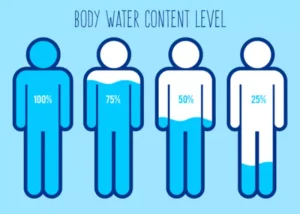
Too much alcohol affects your speech, muscle coordination and vital centers of your brain. A heavy drinking binge may even cause a life-threatening coma or death. This is of particular concern when you’re taking certain medications that also depress the brain’s function. A doctor or other treatment professional may evaluate for the above factors prior to making a recommendation for the level of detox care and detox timeline needed to keep a person safe and comfortable. Common medications include benzodiazepines to help treat symptoms like anxiety, insomnia, and seizures.

Causes of alcohol withdrawal delirium
Whereas some experienced mild symptoms in the early days, others reported severe, sometimes frightening ones. Most of those who experience severe alcohol withdrawal symptoms do so because they’re going through their detoxification period “on their own” without the benefit of medical help. That could be because they didn’t have normal sleep patterns to begin with. Daily drinking can cause disruptions in sleep as well, so quitting suddenly can be a shock to the system. After six days of sobriety, these people report vastly different experiences with sleep and other alcohol withdrawal symptoms. Symptoms of alcohol withdrawal can occur anywhere from six hours to three days after a person’s last drink, and more persistent symptoms tend to resolve themselves within weeks.

Health Challenges
- “Throat still hurts a bit from the vomiting, still sweating and clammy, can’t sleep, have a bit of heartburn/indigestion. Visiting the toilet is becoming less frequent. Even managed to get a small meal in.”
- Some are finally able to get some sleep at day five, whereas others still have problems sleeping.
- To keep health risks from alcohol to a low level, the UK Chief Medical Officers (CMOs) advise it is safest not to drink more than 14 units a week on a regular basis.
- If you have severe vomiting, seizures or delirium tremens, the safest place for you to be treated is in a hospital.
“I feel totally horrible. Shakes, sweats, and insomnia. I am hearing noises that don’t exist. Anyways, I talked to my doctor, and she prescribed a small dose of Valium to help me pull through. It seems to be helping. I hope tomorrow I won’t need it.” By the end of your first month of sobriety, the benefits of better sleep, improved hydration, spending less and decreased calorie intake will be growing. You will likely have saved over $800 and avoided about 12,000 calories or more, allowing you to lose at least four pounds. By the end of this first month, your recovery will be well underway, and your struggle with alcohol will begin to become more of a distant memory than a recent struggle. Keep a list of emergency phone numbers on hand that includes contact info for your doctor, the police, a nearby hospital, and someone you trust. If you decide to get treatment, your doctor can recommend the type of care that you need.
Stage 1: 6 to 12 hours after last drink
- After 12 days of abstinence from alcohol, most people who quit have very few withdrawal symptoms.
- Take our free, 5-minute alcohol misuse self-assessment below if you think you or someone you love might be struggling with an alcohol use disorder (AUD).
- Your doctor will evaluate your usual diet and check for vitamin deficiencies because poor nutrition is common when someone is dependent on alcohol.
- “It’s been really tough, constant inner voice trying to persuade me just the one-night drinking again would be OK. I have just had to surf the urges, keep busy, and use all my strength.”
- The Recovery Village Atlanta offers comprehensive addiction treatment for drug and alcohol addictions and co-occurring mental health conditions.
Your health and wellness is unique to you, and the products and services we review may not be right for your circumstances. We do not offer individual medical advice, diagnosis or treatment plans. A person should seek help for alcohol use disorder simply if it becomes a problem in their life and they feel alcohol withdrawal they need help, says Avery. It can be helpful to make a plan ahead of time for how to handle a relapse.


Most people with mild to moderate alcohol withdrawal don’t need treatment in a https://ecosoberhouse.com/ hospital. But severe or complicated alcohol withdrawal can result in lengthy hospital stays and even time in the intensive care unit (ICU). This article discusses alcohol withdrawal, its symptoms, and potential complications.

- By: admin
- Comments: No Comments
04 Feb. 2021
Support & Treatment National Institute on Alcohol Abuse and Alcoholism NIAAA

It’s Not Your Fault (NACoA) (PDF | 12 KB)Assures teens with parents who abuse alcohol or drugs that, “It’s not your fault!” and that they are not alone. Encourages teens to seek emotional support from other adults, school counselors, and youth support groups such as Alateen, and provides a resource list. The Navigator will steer you toward evidence-based treatment, which applies knowledge gained through decades of carefully designed scientific research.
SAMHSA’s National Helpline
Participating in a group helps ensure that when a person reaches out for help, A.A. These resources go along with the alcohol outlet density toolkit. They have examples of code and Geographic Information System (GIS) pictures to help alcohol outlet density. This CDC Guide for Measuring Alcohol Outlet Density tells you why it’s important to measure alcohol outlet density in your area. It gives you ideas on how to do this in your own state or community. Utilising brain zapping through a headset a home could also be used to treat depression, a different study has found.
Are online alcohol support groups right for me?
- However, this doesn’t mean you can’t implement and enforce healthy personal boundaries.
- AUD is characterized by an impaired ability to stop or control alcohol use despite adverse social, occupational, or health consequences.
- There may also be recovery resources available in your community.
- Self-Management and Recovery Training (SMART) is an international community of mutual-support groups that cover conditions like substance use disorders, eating disorders, gambling, and more.
- Alcoholics Anonymous is available nationwide with support groups in all 50 states.
- Your health care provider can help you evaluate the pros and cons of each treatment setting.
If you feel that you need additional help, organizations like Recovery Centers of America (RCA) offer treatment, medically managed intensive inpatient treatment, and rehabilitation. Still, if you’re feeling overwhelmed or unsure, consider talking with a trusted doctor or mental health professional who specializes in addiction. A large component of support groups is spending time talking with other people who are in the same situation as you. This “peer support” time together has been shown to be incredibly beneficial and often results in higher substance use abstinence rates and feeling more satisfied with substance use treatments. The biggest benefit of online support groups is that you can attend from almost anywhere without having to commute or drive to the meeting location. This is particularly helpful for smaller support organizations that don’t have many locations, allowing you to attend, even if you don’t live near a meeting location.
Do I need health insurance to receive this service?
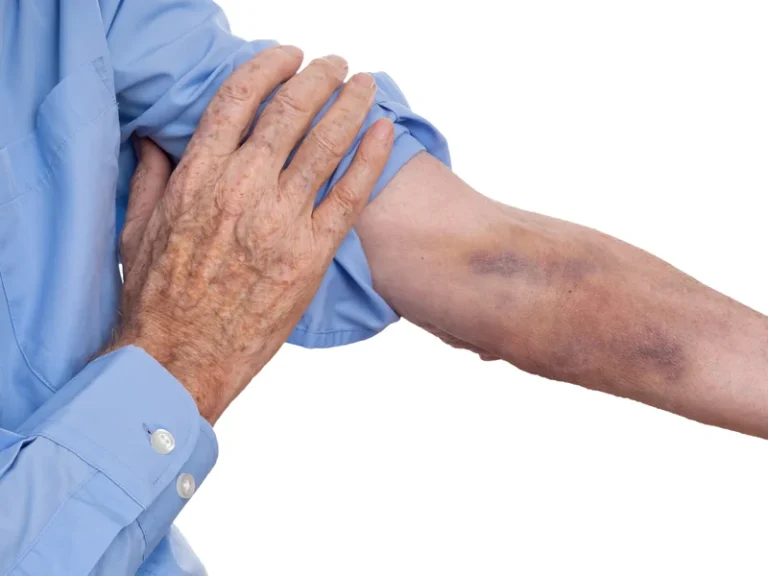
If you are developing your own symptoms of depression or anxiety, think about seeking professional help for yourself. Remember that your loved one is ultimately responsible for managing their own illness. Just like any other medical condition, people with substance use disorders deserve to have a range of treatment options available to them. Scientists are working to develop a larger menu of pharmaceutical treatments that could be tailored to individual needs.
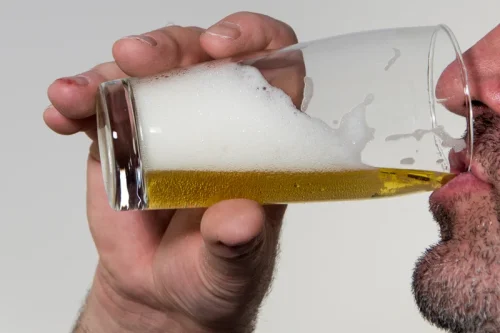
Research shows that most people believe that drinking can make them feel better. However, when alcohol makes up part of your typical routine, drinking can become something of an automatic response, especially when you feel stressed or overwhelmed. It’s possible to develop a better relationship with alcohol and make more mindful, informed choices about drinking without total sobriety. Becoming more aware of your alcohol triggers and reasons for drinking can help you plan ways to help manage the urge to drink.
It feels as if alcohol is everywhere in today’s culture. No matter where you look, you seem to see ads enticing you with the promise of how much more fun your life can be with a few drinks. But for someone working on their sobriety, these ads are far from fun reminders of their addiction.
Frequently asked questions about alcohol support groups
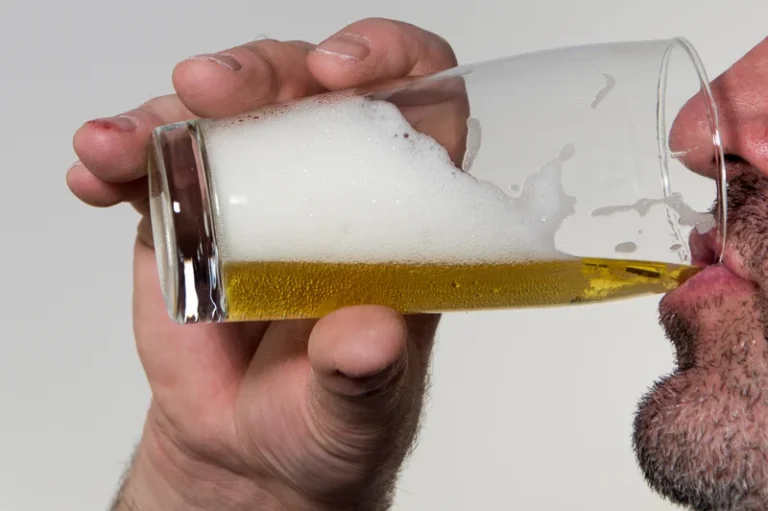
While some insurance providers have limitations on covering rehabilitation centers, most support groups are completely free. A number of health conditions can often go hand in hand with AUD. Common mental health conditions that co-occur with AUD are depressive disorders, anxiety disorders, trauma- and stress-related disorders, other substance use disorders, and support for those who struggling with alcohol addiction sleep disorders. Studies show that people who have AUD are more likely to suffer from major depression or anxiety over their lifetime. When addressing drinking problems, it’s important to also seek treatment for any accompanying medical and mental health issues. Just as some people with diabetes or asthma may have flare-ups of their disease, a return to drinking can be seen as a temporary setback to full recovery and not as a failure.
Products & Services
However, for some people, online meetings may not be an ideal format. Addiction affects the lives of more people than just those who are dealing with addiction. Al-Anon Family Groups give friends and family the support and resources they need to help them cope through challenging times. These groups help people share their experiences from living with a person with alcohol use disorder in a safe and compassionate support group. If you’re living with a family member or loved one who has alcohol use disorder, it can negatively affect your health and well-being. Seeing someone you love misuse a substance can also be scary.

If you have no insurance or are underinsured, we will refer you to your state office, which is responsible for state-funded treatment programs. In addition, we can often refer you to facilities that charge on a sliding fee scale or accept Medicare or Medicaid. If you have health insurance, you are encouraged to contact your insurer for a list of participating health care providers and facilities. However, your participation can make a big difference. Based on clinical experience, many health care providers believe that support from friends and family members is important in overcoming alcohol problems. But friends and family may feel unsure about how best to provide the support needed.
- By: admin
- Comments: No Comments
18 Dec. 2020
6 Things That Happen To Your Body When You Stop Drinking

Information and shareable resources to help others choose to drink less alcohol and be their best. For those with alcohol misuse and dependence, the conditions are connected to chronic sleep disturbance, lower slow-wave sleep, and more rapid eye movement. As we welcome the New Year and the possibilities it presents, I offer this conversation as an encouragement to consider the many ways in which alcohol continues to interfere with your health, hopes, and dreams.
Weight loss
Quitting can lead to https://ecosoberhouse.com/ more stable moods, a reduction in anxiety, and more dangerous symptoms. Alcohol impairs cognitive function, affecting memory and concentration. Once you quit, you’ll notice improved mental clarity and cognitive abilities.

The Science Behind The Chip On Your Shoulder And All The Drama When We Drink – Victoria English
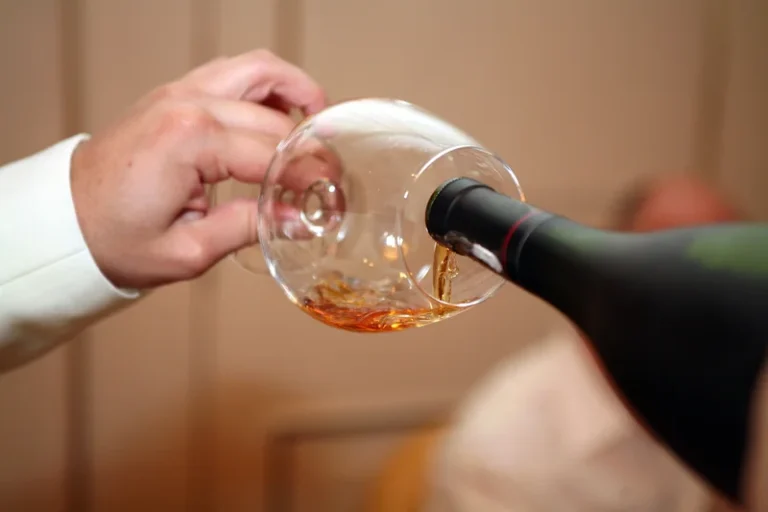
It’s how we pick ourselves up and keep on going that matters the most. Now that you’re alcohol free, you’ll be waking up earlier and with fewer hangovers. Planning more fun morning activities will help take advantage of this clarity. It’s also handy as a quick getaway in case you find the social event too difficult to handle – in terms of alcohol free lifestyle temptations to drink, or even if you decide to go home early.
Decrease the risk of heart disease

Instead of having an ambitious target, it is much better to take this journey step by step so you can digest and be able to mentally prepare for it. There are a number of different ways you can start implementing this tactic. You could paste the reason as a post-it around your house and workplace. You could implement this as a reminder on your phone; or include this in your morning routine and gratitude practices.
If you find yourself unable to make progress, additional support from an alcohol-free program is ideal. A professional coach can help address the underlying issues that contribute to alcohol dependence. An alcohol coach begins by assessing your drinking history, current habits, and personal goals. This helps them understand your unique situation and tailor their guidance to your needs. Furthermore, practice saying “no” to alcohol in social situations. Also, engaging in regular physical activity helps fill the time previously spent drinking.
- This substitution can help satisfy the habit of having a drink in hand without consuming alcohol.
- So these very similar themes that seem to be emerging in the UK as well, around people’s kind of motivations and reasons for not drinking.
- Loved ones are an integral part of the addiction recovery process, but they need to balance their own needs in addition to providing support.
- People want a reason why you’re not drinking and, if it’s not strong enough, many of them will try to persuade you to “just have one or two”.
But treatment and support are available to help those suffering begin to heal. Loved ones are an integral part of the addiction recovery process, but they need to balance their own needs in addition to providing support. To do that, they can set boundaries around their emotional, physical, and financial relationship, for example that the house will remain an alcohol-free zone. They can research alcoholism to understand the underpinnings of the disorder, the signs of an overdose, and other important information. They can discuss co-occurring mental illnesses such as anxiety and depression.
I’M JAMES SWANWICK
Unlike tapering off, which can delay the benefits of quitting, going cold turkey demonstrates a firm commitment to making a positive change. Not only does alcohol addiction, or alcohol use disorder (AUD), affect those who have it, but it can also have significant effects on their interpersonal relationships and households. Heavy drinking can fuel changes in the brain—about half of people who meet the criteria for alcoholism show problems with thinking or memory, research suggests. The ability to plan ahead, learn and hold information (like a phone number or shopping list), withhold responses as needed, and work with spatial information (such as using a map) can be affected.
- If you add in costs of drinking in social settings at restaurants, bars, and clubs, the amount might be more.
- And one of the biggest drivers of the nonalcoholic market actually are people who still drink.
- One that necessitated relying on the very people with whom he’d been imbibing.
- Make sure your children are eating a healthy diet and getting adequate exercise and sleep.
Support & Community
While alcohol is high in calories, and wine, beer, and mixed drinks add sugar to one’s diet, Kumar said that simply cutting it out may not always help you lose weight. Dr. Dasgupta said for social and moderate drinkers, participating in a month break won’t make much difference to their bodies. However, for people who exceed recommendations in the Dietary Guidelines for Americans, he said staying away from alcohol for a month can reap changes. No matter what your reason is for considering a sober-curious lifestyle, there are many health benefits to limiting your alcohol consumption. If you are struggling with substance abuse, consult with your primary care physician.
There are many organized programs that provide the support of peers, usually through frequent meetings. Alcoholics Anonymous is one example; it offers a structured 12-step path toward recovery with a community of support from those who have dealt with similar challenges. As anyone who has had even a glass of wine can attest, alcohol can have a noticeable influence on mood. Drinking releases endorphins which can lead people to feel happy, energized, and excited. But alcohol is also classified as a depressant and can cause fatigue, restlessness, and depression. It may shift from stimulant to sedative in line with whether blood alcohol content is rising or falling.
Surround yourself with people who are also alcohol free (or don’t drink as much). In severe cases of withdrawal when symptoms are not treated, a person may experience generalized tonic-clonic seizures, delirium tremens, and even death. Research shows that drinking large amounts of alcohol before bedtime leads to decreased sleep onset and disrupted, poor quality sleep later in the night. It can cause memory loss and interference with brain development.
- By: admin
- Comments: No Comments

